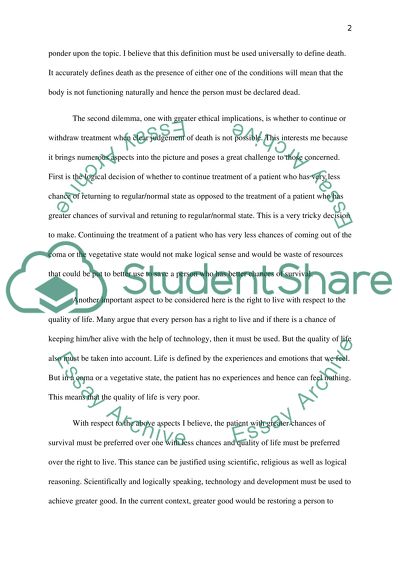Defining Death snd Ethical Issues of Forgoing/Withdrawing Treatment Essay. Retrieved from https://studentshare.org/religion-and-theology/1452059-bioethicstexts-shannon-thomas-a-and-nicholas-j
Defining Death Snd Ethical Issues of Forgoing/Withdrawing Treatment Essay. https://studentshare.org/religion-and-theology/1452059-bioethicstexts-shannon-thomas-a-and-nicholas-j.


